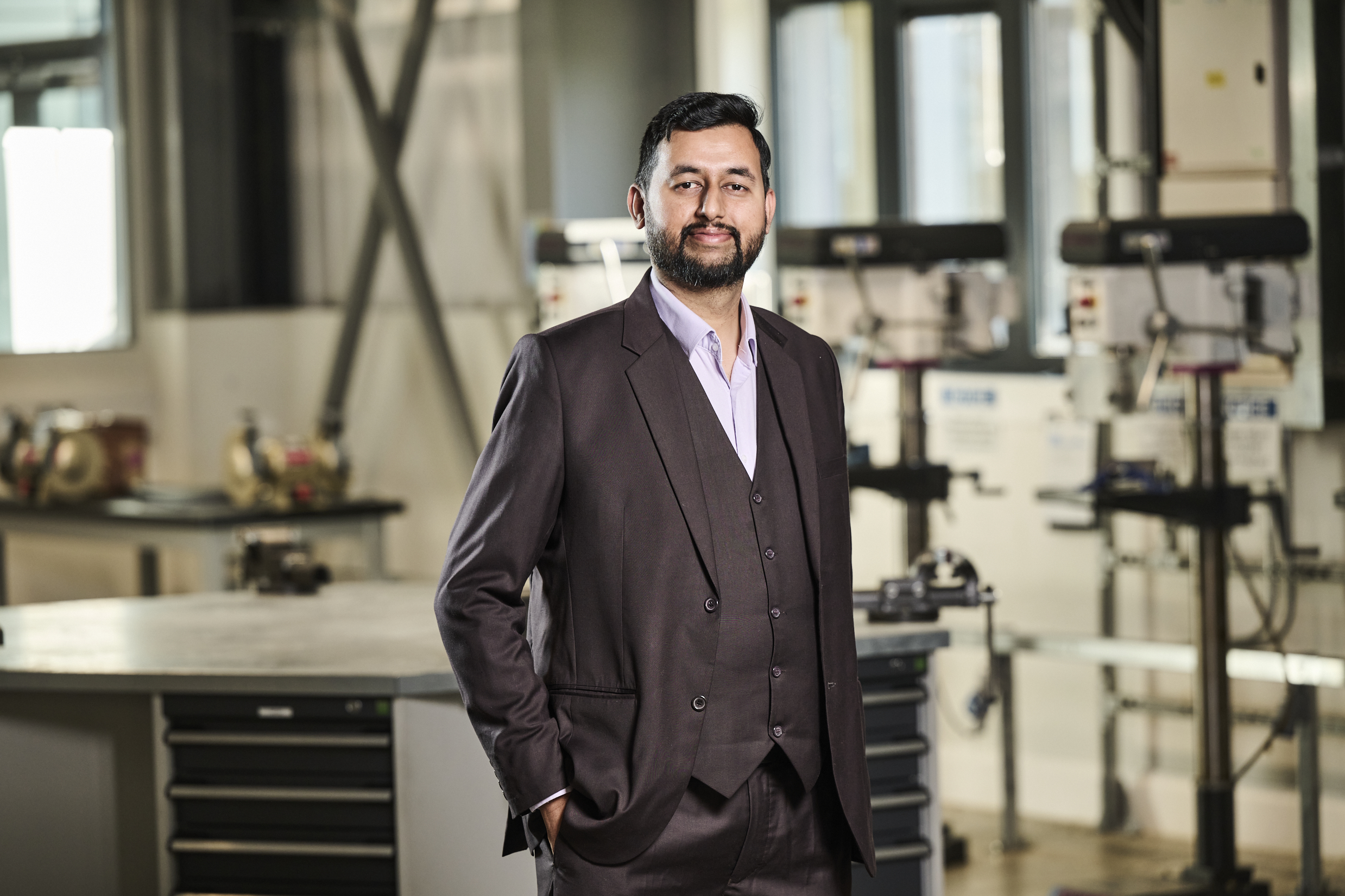Meet the trainer: Zohaib Jawaid

Zohaib is a natural born trainer with an ongoing thirst for knowledge. Having started his career as a Project Engineer, he soon moved into the education sector to pursue his true passion – sharing his specialist skills and helping people to fulfil their potential.
Six months into his role with MTC Training at OAS, Zohaib explained why he’s so passionate about teaching the next generation, how we’re different from other training providers, and shared his top tips for aspiring apprentices and trainers.
What was your prior industrial experience before you joined MTC Training?
I specialised in installing and commissioning bespoke security surveillance and customised automation projects as a Project Engineer at Limton Group of Companies. I provided technical support for various controllers such as RAC-2000 and NCU, ensuring their integration and compatibility within the systems, and conducted research and development activities for the integration of new products to enhance operational efficiency.
Alongside this, I also ran training sessions for engineers and technicians, helping to ensure their proficiency in adopting new machines and controllers. These training sessions sparked the realisation that my true passion was education, and before long I moved out of industry and into academia.
As an Assistant Professor at UIT University and then a Lecturer at Bath College, I taught a broad spectrum of topics within Electrical and Electronic Engineering across a range of different educational levels, from T-Levels to HNDs. My roles included mentoring students, supporting the development of course materials and practices to meet changing industry needs and standards, and serving as a Paper-Setter and External Examiner for various other institutions.
At the same time, I remained committed to my own professional development. I took part in workshops and seminars to keep abreast of industry trends and teaching methodologies, embracing educational technology to enhance my students’ learning experience.
Why did you decide to become a trainer?
My lifelong passion for learning ignited during my childhood – I have always loved sharing knowledge and guiding others to learn. Teaching is a calling for me, driven by the desire to inspire and empower others. Effectively communicating complex ideas and concepts is one of the most challenging and rewarding aspects of teaching – it requires patience, creativity and a genuine commitment to understanding and responding to the needs of each learner.
Once I entered professional teaching, this passion only deepened. I am here to make a positive impact on learners’ lives, helping them unlock their potential and achieve their goals. Whether it's simplifying complex concepts, providing guidance through challenges, or instilling a lifelong love for learning, I am dedicated to empowering others on their educational journey.
What do you enjoy most about your training role?
Individuals join us with varying levels of knowledge and experience, and seeing them gradually grasp complex concepts and gain confidence in their abilities is hugely rewarding. I take pride in facilitating their learning journey, whether it's through hands-on projects, theoretical discussions, or practical exercises. I aim to foster a collaborative and supportive learning environment where everyone feels encouraged to ask questions, share ideas, explore new technologies, and most importantly to grow.
How is MTC Training different from other training providers?
We give our learners a unique experience, offering access to cutting edge technologies, state-of-the-art facilities, advanced resources and modern equipment that are distinct from those found elsewhere. Our dual commitment to supporting our learners’ progress and advancing engineering as a discipline creates a dynamic environment where apprentices can engage deeply with their studies and contribute to the broader field.
The training team at OAS is proactive in incorporating modern engineering practices into the curriculum, equipping learners with the skills and knowledge most relevant to today's industry demands. The way we approach education and professional development sets us apart from other training providers and shows our dedication to continuous improvement and innovation.
What makes a good apprentice? What qualities do apprentices need to make the most of their opportunities here?
A good apprentice is curious, hardworking, and flexible. They want to understand how machines and technology work and are always eager to learn more. They're careful and pay close attention to detail in their work because they know that being precise is super important in engineering. They’re also adaptable in different situations and learn from their experiences. They enjoy working with others and learning from their mentors and coworkers, which helps them get better at what they do and bring new ideas to the table.
What advice would you give to prospective apprentices?
Approach your apprenticeship with an open mind and a willingness to learn.
Take every opportunity to ask questions, seek guidance, and absorb as much knowledge as you can from your trainers and colleagues. Remember to stay curious and explore different aspects of engineering to broaden your understanding of the field. Be proactive in seeking out hands-on experience and volunteer for tasks that challenge you and allow you to apply what you've learned.
Develop good communication skills and actively participate in team projects to enhance your collaboration abilities. Finally, stay resilient and adaptable in the face of challenges as these are inevitable in any learning journey.
What advice would you give to someone who might be thinking of becoming a trainer?
Prioritise both your technical expertise and developing effective teaching skills. It's crucial to have a deep understanding of the subject matter you'll be teaching, but it’s equally important to convey that knowledge in a clear and engaging manner.
Invest time in polishing your communication skills, as well as your ability to adapt teaching methods to different learning styles and levels of understanding.
Stay up-to-date with advancements in your field and incorporate real-world examples and case studies into your teaching to make the material relevant and relatable.
Embrace technology as a tool for enhancing learning experiences, whether through interactive simulations, online resources, or virtual labs.